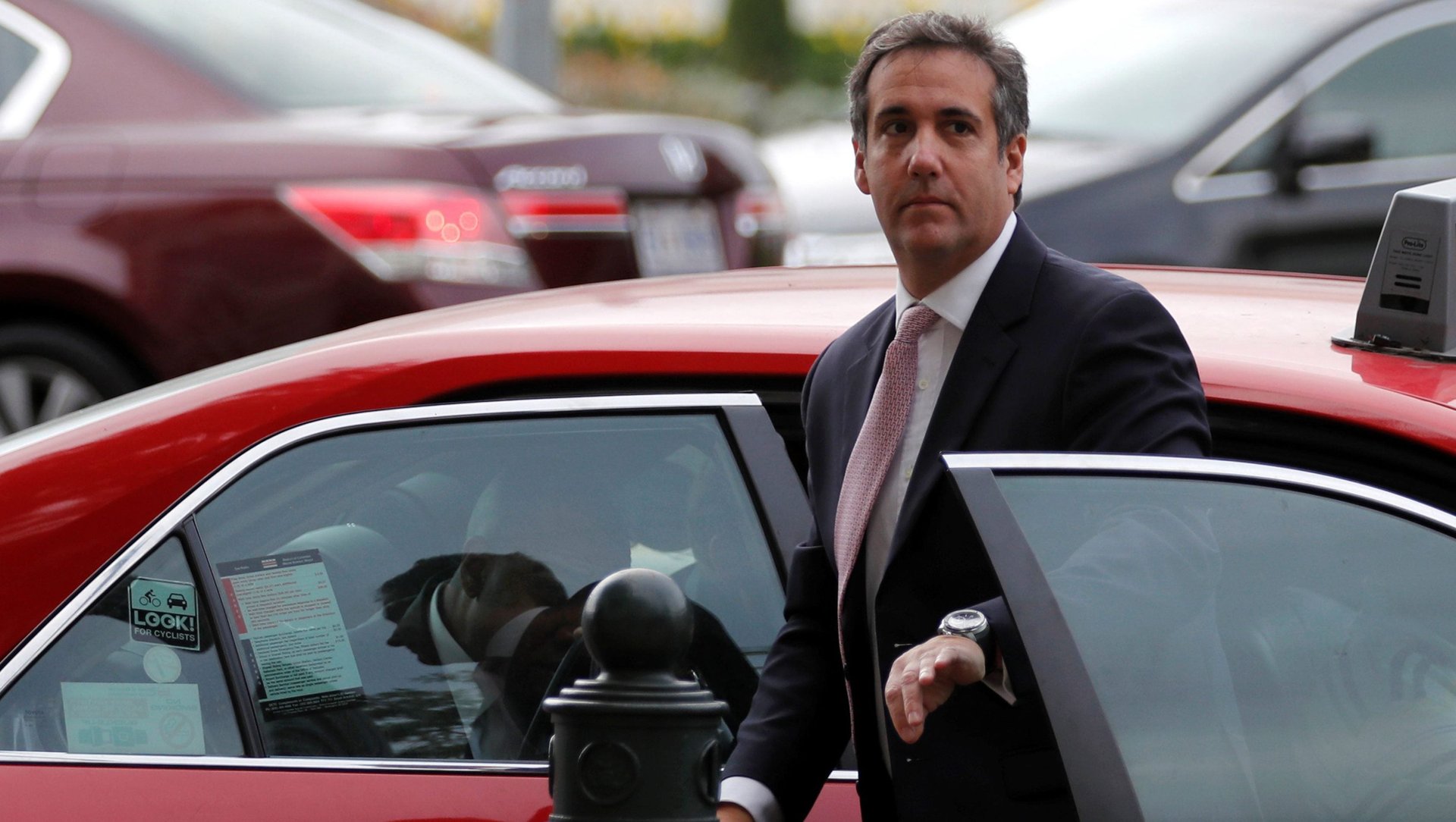Even the swamp has rules, DC lobbyists say. Michael Cohen didn’t play by them
Plenty of people in Washington, D.C. receive six figure salaries to try to convince government officials to make decisions that benefit corporations, not the public.


Plenty of people in Washington, D.C. receive six figure salaries to try to convince government officials to make decisions that benefit corporations, not the public.
But there are some rules.
That’s the message from lobbyists, consultants, and public relations veterans in D.C. after allegations that Donald Trump’s lawyer Michael Cohen raked in over $2 million combined from Novartis, AT&T, and a South Korean defense company. The three companies have confirmed their payments, though they claim they received little in exchange.
An extraordinary payment
AT&T paid Cohen $800,000 from “early 2017” until December of 2017, the company said, “to help us understand how the President and his administration might approach a wide range of policy issues.” Novartis paid Cohen $100,000 a month for 12 months, to “advise the company as to how the Trump administration might approach certain US healthcare policy matters, including the Affordable Care Act,” the company said in an email.
These prices are unusual, long-time lobbyists and consultants insist.
Cohen’s fees are above the going rate in DC for a “single issue” lobbyist, an advisor that would work on one topic, like, say, a looming health care bill. A company or government typically pays between $65,000 and $95,000 a month to retain an entire firm to do this work, one with credentials, a brand name, and a bunch of consultants on call.
For several hundreds of thousands, “they hire a guy with an LLC, and no staff, and no nothing, certainly no track record?” said one apoplectic veteran public relations manager who works with foreign governments.
A sudden demand
Trump’s election threw the Washington, DC “swamp” into upheaval, as the city’s lobbying firms had hired tons of Hillary Clinton contacts, anticipating her win. According to one employee interviewed by STAT News, pharmaceutical company Novartis was desperate.
“We were trying to find an inroad into the new administration. Cohen promised access to not just Trump, but the circle around him.” Plus, said the employee, “He reached out to us.” The company later said that Cohen and his Essential Consultants group failed to provide the services it needed.
Lobbyists in DC say that if a company needs a government affairs or public affairs representative, they usually interview several registered firms, often with their legal team or chief operating officer in the room, before deciding on one. That process, even in an emergency, could take six weeks.
But in the wake of the 2016 election, Cohen was so besieged with phone calls for help that he had to turn potential clients down, a friend told the Washington Post. Corey Lewandowski, the former Trump campaign manager, saw an opportunity and co-founded consulting firm Avenue Strategies in December 2016, though he never registered as a lobbyist. Lewandowski resigned about six months later, after reports that he was boasting about his access to Trump.
Another Trump whisperer, Brian Ballard, has become “the most powerful lobbyist in Trump’s Washington,” according to Politico. His year-old firm, Ballard Partners, is raking in the cash, competitors say, but playing by DC rules. The difference is that Ballard operates like a lobbyist should, DC veterans say. “They do meetings on the Hill, they talk to administrative folks,” and they’re registered as lobbyists.
Not all hired advocates have to register as lobbyists. “Only individuals who spend at least 20% of their time on lobbying activity in a three-month period are required to register as lobbyists,” said Corey Goldstone, spokesperson at Campaign Legal Center. “Unless Cohen set up meetings with White House officials on behalf of the companies and exceeded the 20% threshold,” he didn’t need to register.